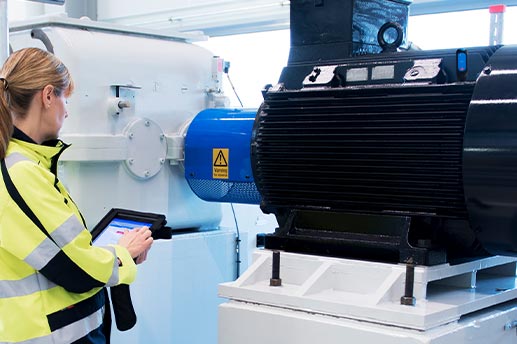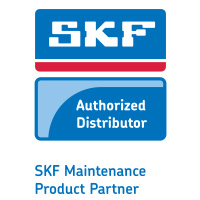5 Reasons to Implement a Predictive Maintenance Plan

In the world of industrial operations and manufacturing, maintenance has always played a crucial role in ensuring equipment reliability and optimizing productivity. Traditionally, maintenance strategies have focused on reactive or preventive approaches. However, with the advent of advanced technologies, predictive maintenance has emerged as a game-changer in the industry. In this blog post, we will explore five compelling reasons why businesses should consider implementing a predictive maintenance plan.
1. Increased Equipment Reliability
One of the most significant advantages of predictive maintenance is its ability to enhance equipment reliability. Unlike reactive maintenance, which addresses failures after they occur, predictive maintenance uses real-time data and advanced analytics to detect potential issues before they escalate into costly breakdowns. By continuously monitoring critical parameters and analysing data patterns, predictive maintenance can identify early signs of wear and tear, component failure, or abnormal behaviour, allowing maintenance teams to intervene proactively. As a result, unplanned downtime is minimized, and the lifespan of equipment is extended, leading to improved overall productivity.
2. Cost Savings and Improved Efficiency
Predictive maintenance can yield substantial cost savings for businesses. By preventing unexpected breakdowns and minimizing downtime, companies avoid the costly repercussions of emergency repairs and production interruptions. Furthermore, predictive maintenance enables organizations to schedule maintenance activities more efficiently. Instead of following fixed time-based schedules, maintenance can be performed precisely when it is needed, based on data-driven insights. This reduces unnecessary maintenance work, lowers spare parts inventory costs, and optimizes labour resources. The cost savings and improved efficiency can have a direct and positive impact on a company's bottom line.
3. Enhanced Safety and Compliance
In industrial environments, equipment failures can have severe safety implications for workers and the surrounding environment. Predictive maintenance reduces the likelihood of accidents caused by malfunctioning equipment by identifying potential hazards early on. Ensuring that machines are in good working condition enhances workplace safety, protects employees, and minimizes the risk of costly legal liabilities due to non-compliance with safety regulations. By integrating predictive maintenance into their operations, businesses demonstrate a commitment to safety and responsible practices.
4. Data-Driven Decision Making
In the era of big data and the Industrial Internet of Things (IIoT), businesses have access to an unprecedented amount of data. Predictive maintenance leverages this data to make informed decisions. Through the utilization of sensors and advanced analytics, companies can gather valuable insights into equipment performance and health. This data-driven approach enables maintenance teams to prioritize tasks, allocate resources efficiently, and make smarter decisions about repairs and replacements. As a result, businesses can optimize maintenance budgets and ensure the right interventions are conducted at the right time.
5. Improved Overall Equipment Effectiveness (OEE)
Overall Equipment Effectiveness (OEE) is used to measure the productivity of machinery. For this, it considers three factors: availability, performance, and quality. By reducing downtime, enhancing equipment reliability, and optimizing maintenance practices, predictive maintenance directly impacts OEE positively. With fewer breakdowns and better maintenance practices, equipment uptime is increased, leading to improved availability. Additionally, predictive maintenance can help identify and rectify performance issues that might otherwise go unnoticed, further enhancing OEE and overall operational efficiency.
Conclusion
 Implementing a predictive maintenance plan is a strategic investment that can yield significant benefits for businesses. By embracing data-driven insights and taking a proactive approach to maintenance, organizations can enhance equipment reliability, achieve cost savings, improve workplace safety, and optimize overall equipment effectiveness. As technology continues to evolve, predictive maintenance will become an indispensable tool for businesses seeking a competitive edge in the ever-changing industrial landscape. ACORN® is proud to be certified Maintenance Partners and Authorised Distributors for SKF products. This highlights the company's commitment to providing customers with long-lasting maintenance solutions for their machinery. Talk to our Bearing & Maintenance Expert today for more information.
Implementing a predictive maintenance plan is a strategic investment that can yield significant benefits for businesses. By embracing data-driven insights and taking a proactive approach to maintenance, organizations can enhance equipment reliability, achieve cost savings, improve workplace safety, and optimize overall equipment effectiveness. As technology continues to evolve, predictive maintenance will become an indispensable tool for businesses seeking a competitive edge in the ever-changing industrial landscape. ACORN® is proud to be certified Maintenance Partners and Authorised Distributors for SKF products. This highlights the company's commitment to providing customers with long-lasting maintenance solutions for their machinery. Talk to our Bearing & Maintenance Expert today for more information.

 Andy's Top Products for Predictive Maintenance:
Andy's Top Products for Predictive Maintenance: